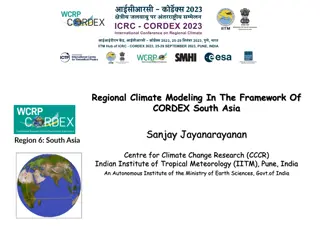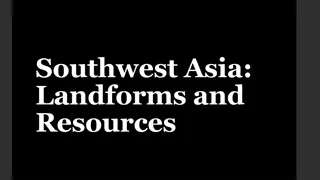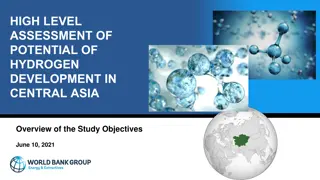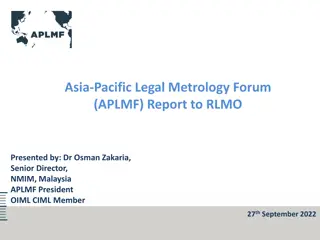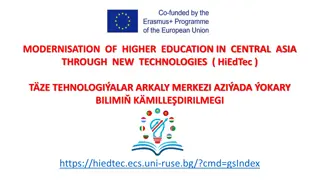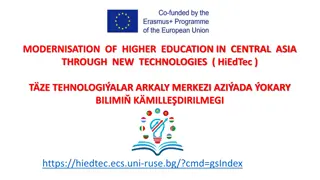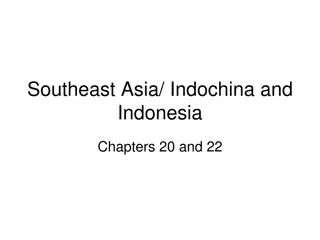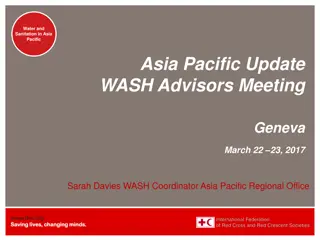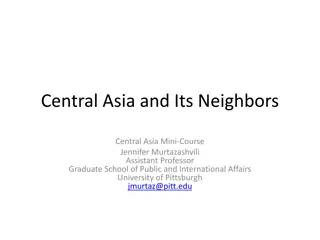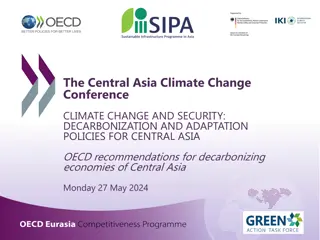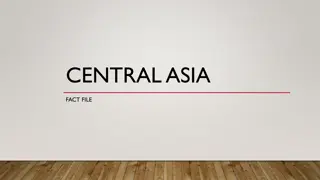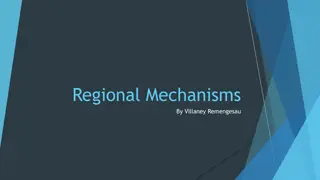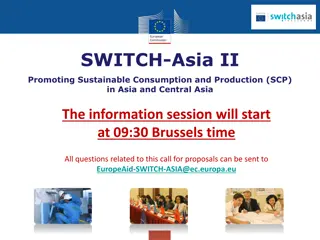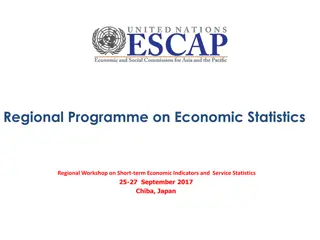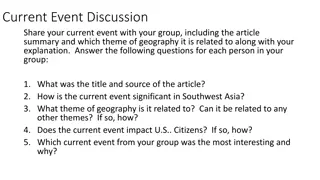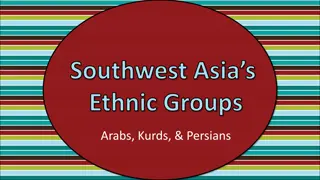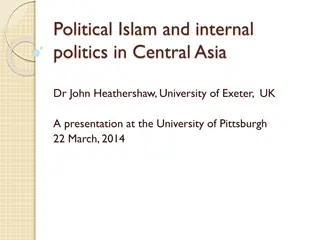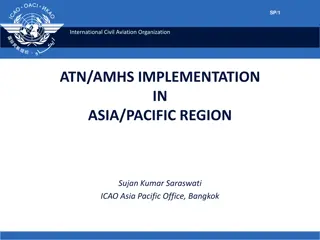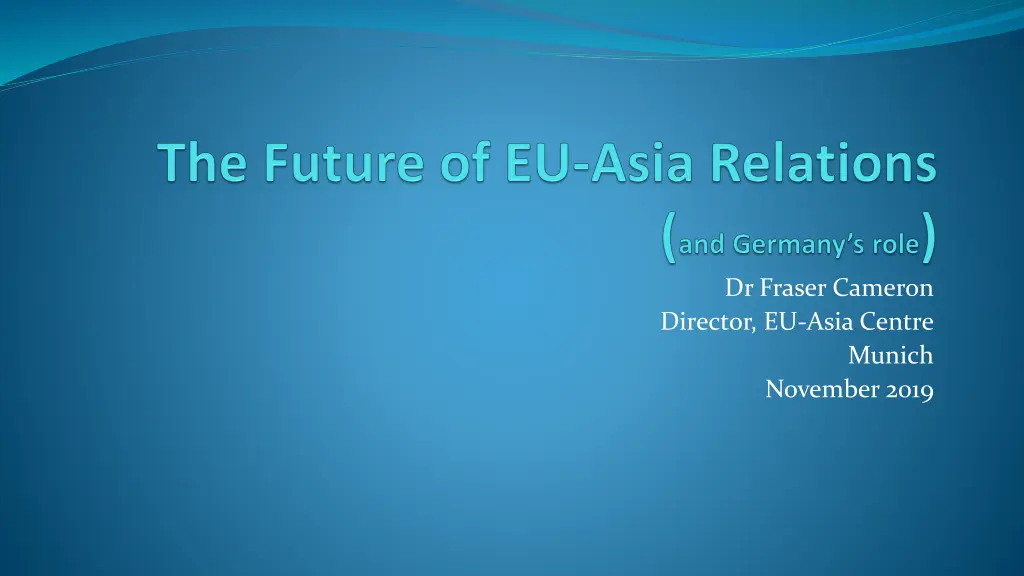
Understanding EU's Engagement with Asia: Insights from Dr. Fraser Cameron
Explore Dr. Fraser Cameron's insights on the EU's approach towards Asia, emphasizing the importance of Asia's economic growth, trade relationships, and strategic partnerships. Discover key aspects such as EU-Asia relations, ASEAN dynamics, bilateral engagements with China, India, Japan, and Korea in this informative discussion.
Uploaded on | 1 Views
Download Presentation

Please find below an Image/Link to download the presentation.
The content on the website is provided AS IS for your information and personal use only. It may not be sold, licensed, or shared on other websites without obtaining consent from the author. If you encounter any issues during the download, it is possible that the publisher has removed the file from their server.
You are allowed to download the files provided on this website for personal or commercial use, subject to the condition that they are used lawfully. All files are the property of their respective owners.
The content on the website is provided AS IS for your information and personal use only. It may not be sold, licensed, or shared on other websites without obtaining consent from the author.
E N D
Presentation Transcript
Dr Fraser Cameron Director, EU-Asia Centre Munich November 2019
Why Asia? Two-thirds of world pop ; Rise of China (and India) Driver of economic growth 7% + cf EU 1-2% EU trade with Asia rising fast Source of FDI especially from China Cannot resolve global problems (security, trade, climate change, etc without Asia input And Asians now seeking closer links with stable, rules-based EU, as buffer against uncertainty of Trump s America First policy
How does EU approach Asia? ASEM Asia Europe Meeting Summit of 50+ countries every two years (Cambodia 2020) Ministerial in odd years Talk feast but useful as no Americans in room Many side meetings Leaders like informal retreat Political/economic and People to People Always Business Forum side event + golf !
ASEAN EU likes to support any regional organisation as part of its DNA ASEAN most advanced and although ambitious plans handicapped by tiny secretariat, tiny budget, unanimity rule and no interference Lack of leadership used to be Indonesia but now? Many disputes and backsliding on democracy/HR: Philippines (drugs war), Thailand (military rule), Cambodia (repressive one party rule), Myanmar (ethnic tensions), Malaysia (corruption), etc.
EU-ASEAN 40thanniversary last year - several action plans but not much progress EU wants to encourage ASEAN global role support multilateralism ASEAN keen to learn from EU regular visits to Brussels but weak on implementation Aviation negotiations for open skies agreement nearly finalised And much technical help eg on trade Hope to have eventual bloc to block agreement
Bilateral Relations Emphasis on four strategic partners: China, India, Japan and Korea China most attention as biggest trade partner and increasing global partner (climate change, Iran, WTO). But also trade irritants (market barriers, enforced technology transfer, IP theft) Talks on going on Bilateral Investment Agreement (BIT) hope to sign in Leipzig Sept 2020. India never fulfilled promise. Trade talks stalled. But Modi now keen on boosting relations especially maritime security. Merkel recently in Delhi Japan comprehensive agreements concluded Abe also aware of geopolitical context Korea three agreements working well
Bilateral (2) FTAs signed with Singapore and Vietnam Talks with Indonesia Thailand and Malaysia but palm oil dispute Philippines on hold Australia and NZ making good progress LDCs benefit from GSP+ and EBA huge growth in textile exports but Cambodia could lose EBA due to bad HR record EU also biggest provider of development assistance and humanitarian aid
Challenges Making Connectivity work -China/Japan Korea, US, Australia? DPRK what role for the EU? South China Sea now a Chinese lake? Myanmar how to solve current crisis? Hong Kong? Afghanistan cannot cut and run but how long there? United EU approach (16+1) Promoting integrated approach to security (Op Atalanta) Working together in multilateral fora Maintaining normative agenda
Conclusion First step put EU house in order will improve our image in Asia New von der Leyen Commission geopolitical but can EU maintain interest (Hogan good news Borrell less interest). Macron took EU/D reps to China good signal. Merkel inviting all 27 MS to Leipzig next year. Step up engagement across the board more public diplomacy more courses on Asia at universities Make use of Asian diaspora in Europe Be modest and pay attention to history our own in region and more recent disputes (lack of reconciliation in East Asia)
Conclusion (2) China big test. Tougher EU approach based on D business frustration over years buzzword reciprocity. Plus resilience EU champions? US factor - affects us all uncertainty over tariffs and commitment to WTO could all fall apart in December Importance of Asia here to stay Business need to get involved press for united EU voice German business already important voice; D and EU can set regulatory standards (as for data) and use power of the Single Market Brexit Asian as confused as EU about chaos in UK

![READ⚡[PDF]✔ Emerging Space Powers: The New Space Programs of Asia, the Middle Ea](/thumb/21554/read-pdf-emerging-space-powers-the-new-space-programs-of-asia-the-middle-ea.jpg)

